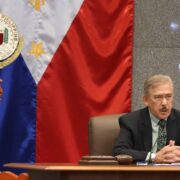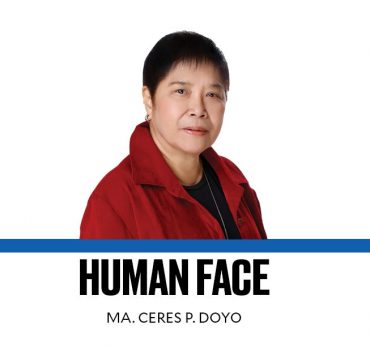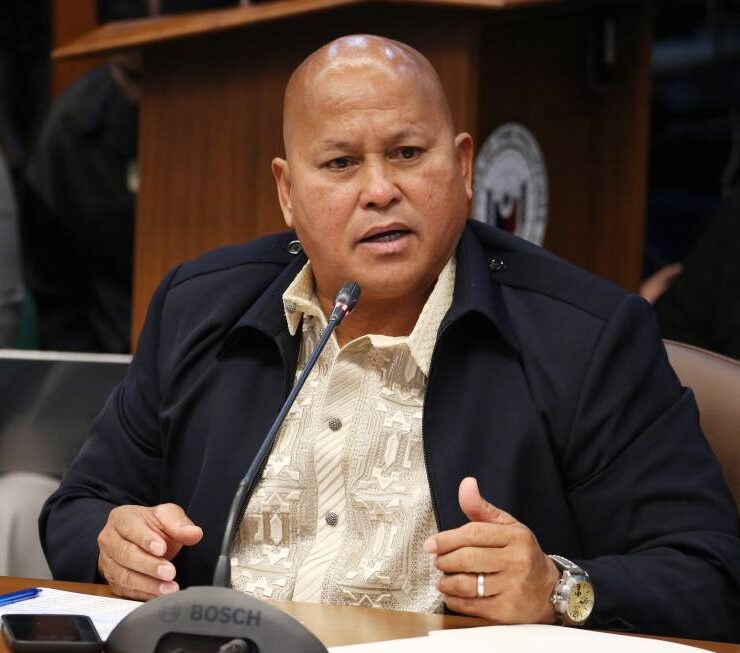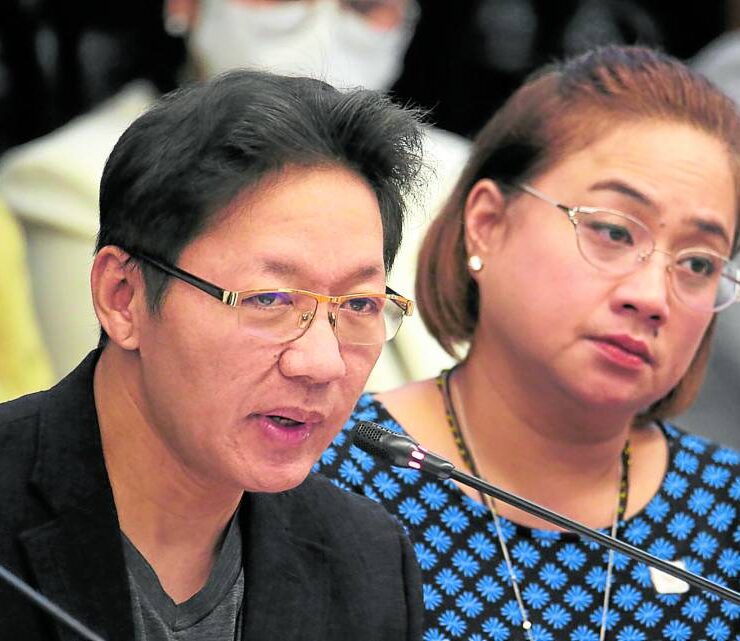Groups ask SC to stop Marcos rice tariff order
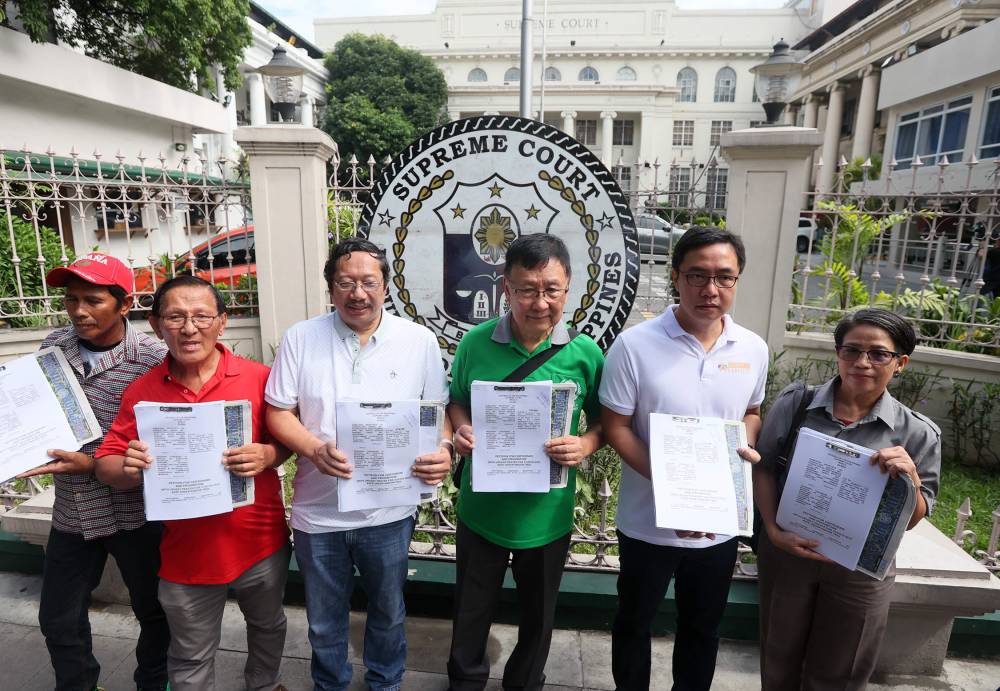
Leonard Abella, 53, has been farming rice for decades, but his toiling has yet to pay off as he remains buried in debt.
He barely earns any profit from tilling the land; whatever he earns is spent immediately to pay off his loans and buy necessities for his small-scale farm in Rosales, Pangasinan, such as water, seeds and pesticides.
“The income is small, not even enough for food… We are farmers [and yet] we have almost nothing to eat,” he said in an interview.
With the new comprehensive tariff program reducing the impost on rice and other products from 35 percent to 15 percent, farmers such as Abella are concerned that consumers will opt for cheaper imported rice over the local produce.
In a bid to stop the government from implementing Executive Order (EO) No. 62 issued by President Marcos on June 20, Abella joined various agricultural and farmers’ groups on Thursday in filing a petition for certiorari and prohibition before the Supreme Court.
The petitioners are Samahang Industriya ng Agrikultura Inc., Federation of Free Farmers Inc., United Broiler Raisers Association Inc., Sorosoro Ibaba Development Cooperative, and lawyer Argel Cabatbat of Magsasaka party list.
While the high tribunal deliberates the petition, the groups appealed for an urgent status quo ante order or a temporary restraining order (TRO) on the policy.
Named respondents in the case are President Marcos, Executive Secretary Lucas Bersamin, Secretary Arsenio Balisacan of the National Economic and Development Authority (Neda), and Tariff Commission Chair Marilou Mendoza.
Delay in price cuts
The Department of Agriculture (DA), however, warned that deferring the implementation of reduced import duties on various products such as rice would delay the expected reduction in retail prices of these goods.
Government and private economists earlier noted that the persistently high prices of food such as rice and meat have been contributing to the elevated inflation rate nationwide.
“In general, if the Supreme Court grants the temporary restraining order, it is not good for our rice stocks because it will delay importation efforts of our private importers,” Agriculture Assistant Secretary Arnel de Mesa said in a briefing on Thursday.
De Mesa, the DA’s spokesperson, explained that rice traders might hesitate to bring in imported rice due to the confusion over tariff rates.
“And of course, if the request for a TRO is granted, the potential decrease in rice prices in the markets will also be delayed,” he added.
De Mesa said rice demand in the international market was declining and global prices were expected to further ease once India lifts its export ban on the commodity.

Members of Agricultural groups in the country Farmers’ groups filed a petition for certiorari and prohibition before the Supreme Court in Manila on thursday against Executive Order 62 which modifies tariff rates on agricultural products including rice. Petitioners asked the high court to declare EO 62 void and unconstitutional, the group also wants a temporary restraining order (TRO) on EO 62, adding that the tariff cut will negatively impact local producers and will only benefit rice exporters.
INQUIRER/ MARIANNE BERMUDEZ
No public hearings
In their 27-page petition, the groups asked the high tribunal to declare EO 62 as null, void and unconstitutional, saying that it was “hastily issued” and violated the requirement of the Customs Modernization and Tariff Act (CMTA) to conduct an investigation and public hearings on the matter.
Under the “flexible clause” of the CMTA, or Republic Act No. 10863, the Tariff Commission is required to investigate and hold public hearings to afford interested parties a “reasonable opportunity” to be heard before any recommendation is submitted to the President by Neda.
Prior to the issuance of EO 62, the petitioners said EO 10 already lowered the tariff for corn imports to 5 percent, while pork shipments were charged 15 percent and rice, 35 percent.
Similar executive orders that temporarily reduced the tariff on rice, corn and meat products underwent the mandated consultations, investigation and hearing, the petitioners said.
“As a matter of fact, the herein petitioners were duly notified and have actively attended and participated in the investigations held prior to the issuance of the said EOs,” it said.
However, the groups said no such consultation or hearing was ever held specifically on the reduction in the tariff on rice and other agricultural produce under EO 62.
They argued that the mandated process was a limitation set by the law before the President could validly issue an executive order.
Aside from allegedly skipping the procedural requirement, legal counsel Virginia Suarez said the petition was also filed because it violated the state policy under Article 12, Section 1, of the 1987 Constitution to develop a self-reliant and independent national economy.
Undue competition
“Lowering tariffs on products, specifically staple foods like rice and corn, poses significant challenges for local farmers. Lower tariffs can lead to an influx of cheaper imported goods, undermining domestic producers’ and farmers’ sales and products,” the petitioners said in their filing.
“This is clearly detrimental to the farmers, who may struggle to compete with the lower prices of imported products,” they added.
Suarez added that the policy violated the constitutional mandate to protect farmers from unfair competition and trade practices, as stated under Article XIII, Section 5, of the Constitution.
“This is a total sellout to our farmers. It’s like you depend on imported products for all our food. That’s wrong,” she said.
In a statement released hours after the filing of the petition, Neda’s Balisacan acknowledged the decision of the farmers’ groups to pursue legal action against the implementation of EO 62.
“We are currently awaiting the receipt of the petition and wish to express our utmost respect for the legal process,” he said, adding that Neda would respond to the petition in due time. –WITH A REPORT FROM JORDEENE B. LAGARE













